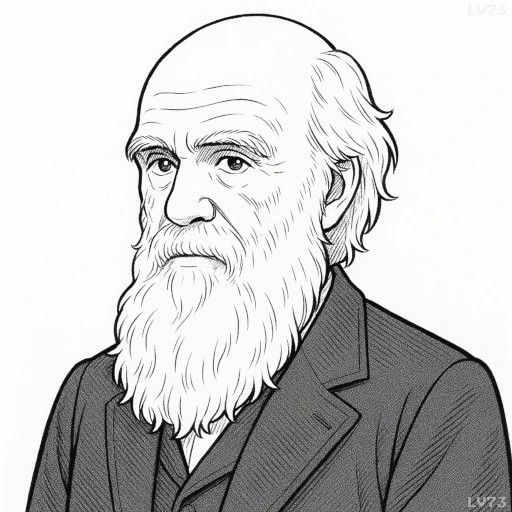“A scientific man ought to have no wishes, no affections, – a mere heart of stone.”

- February 12, 1809 – April 19, 1882
- Born in England (UK)
- Naturalist, geologist, biologist
table of contents
Quote
“A scientific man ought to have no wishes, no affections, – a mere heart of stone.”
Explanation
In this quote, Charles Darwin humorously suggests that a scientific man should be devoid of personal emotions or attachments in order to be objective and focused on the facts. Darwin’s statement reflects the ideal of scientific objectivity, where personal biases or emotional attachments could cloud one’s ability to objectively assess data and arrive at unbiased conclusions. The phrase “a mere heart of stone” underscores the idea that emotions might interfere with the clear, logical thinking required for scientific investigation, where facts and evidence must always take precedence over subjective feelings.
Historically, Darwin’s own work was marked by an intense commitment to scientific rigor, often driven by a relentless pursuit of truth even when it conflicted with personal beliefs or societal norms. As he developed his theory of evolution, particularly the idea of natural selection, Darwin faced considerable emotional and intellectual strain, especially when his ideas clashed with widely held religious beliefs. His quote likely reflects the personal discipline he applied to his work, maintaining a clear focus on the evidence rather than personal sentiment. This focus on scientific detachment was part of the broader scientific method that Darwin adhered to, where emotions were set aside in favor of observing, experimenting, and reasoning.
In modern times, this quote brings attention to the idea of objectivity in science, but it can also be seen as a reflection of the historical notion that emotion and reason were separate and sometimes at odds. Today, we understand that scientific inquiry can be influenced by human perspectives, and emotions can drive curiosity and exploration. While objectivity remains a cornerstone of good science, it’s now recognized that passion for discovery and a deep empathy for the subjects of study—whether humans, animals, or the environment—can coexist with rigorous analysis. The modern view acknowledges that while science demands careful analysis, it can also benefit from the broader human experience and values that shape it.
Would you like to share your impressions or related stories about this quote in the comments section?

